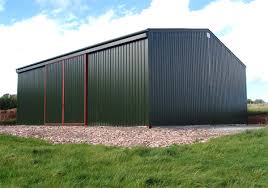Sheds are versatile structures. We can store things in them – from machinery, farm equipment, cars, motorbikes, bikes, to boats. Sheds enable hobbyists to personalise a space outside the home to explore their craft. Business owners can engineer shed space for their office or workshop. Guests can stay in a shed converted guest house. We can use a shed for a home gym. The possibilities are endless. Sheds are easy to maintain spaces. They are beneficial to the economy, tradesmen, farmers, home owners and also, according to some studies, for mental health.
The market for sheds is growing substantially, with large varieties of steel pergola designs available at varying costs. Steel is a recommended material for building sheds as it is not easily damaged by weather or fire and is fast and economical to install.
Identifying the type of structure you want is one of the most important steps when installing a shed and there are many things to consider;
Firstly, what type of shed do you require: residential, rural or commercial? This could mean anything, from a garage for your vehicle, a rural barn or wintering shed to a basic steel shed for business use. For many dairy farmers the importance of a wintering shed is becoming more obvious with the right set up greatly reducing costs and risks normally involved in common wintering practices.
One of the biggest mistakes is assuming that it will be cheaper to buy a ‘standard shed’ design rather than designing your own when in reality the competition in the shed industry is so strong that it is just as cost effective to design your own shed and get exactly what you want for your needs.
Shed pricing. It is recognised that internet prices and kit shed costs may indeed be cheaper than your local shed engineering company. However more often than not the cut in price comes at the expense of quality and service. A shed is often one of the biggest investments a person will make so it pays to do your research and to visually inspect the materials that will be used in the building of your shed. What material will be used to construct your shed? Make an informed decision. Are they imported or local? Are the materials of a standard specific for the environment of the area that you live in? Consider your shed’s surroundings and allow for easy access to your shed: what type of foundations are necessary?
 They say it’s not the size but how you use it. Both are equally important when it comes to sheds. How will your shed space meet your present and future needs? Remember, things tend to accumulate! Plan for the future and potential uses beyond your present requirements.
They say it’s not the size but how you use it. Both are equally important when it comes to sheds. How will your shed space meet your present and future needs? Remember, things tend to accumulate! Plan for the future and potential uses beyond your present requirements.
Are there any planning or building regulations you need to follow? Will you need a planning or building permit? Check local building regulations in case of any restrictions on your area. There is nothing worse than owning all of the materials to build a shed and then be unable to build it.
Whether for business or recreation, your shed will be a new space that will be an important addition to your home or business. It will add value to your property and your life. It is a space that grows with you and your family over time. It’s time to open those doors and put your dream into action!